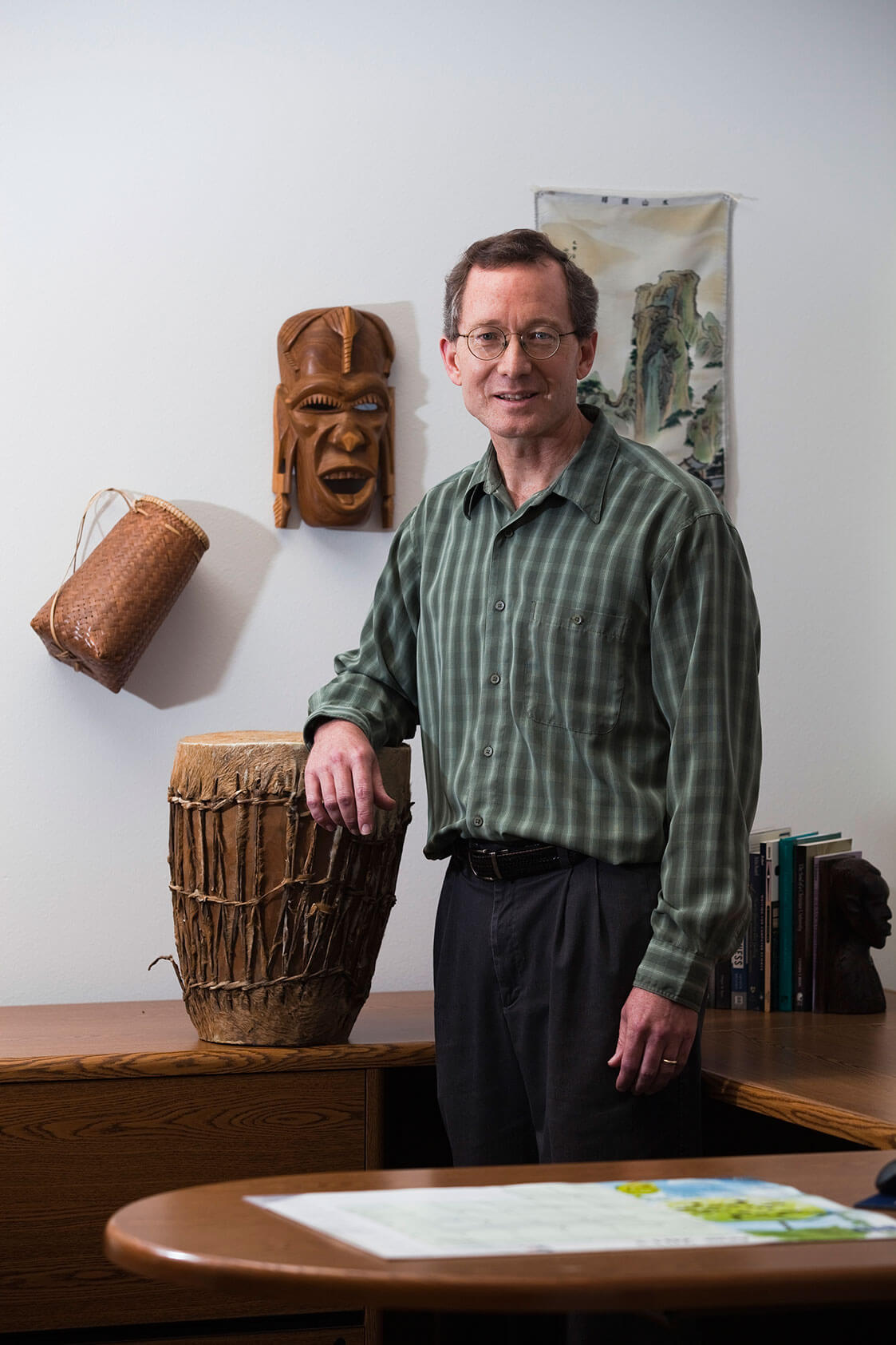By Rachel Stallard
Esteemed educators dressed in dark flowing robes, velveted hoods with tasseled caps and mortar boards follow in single file the footsteps of one man as the music “Pomp and Circumstance” plays for the packed auditorium.
Dr. Brent L. Baas led this processional holding the university’s mace aloft in front of him when he served as LeTourneau University's Teaching Faculty Organization president in Spring 2013. Commencement services are a celebration of academic achievement for students who go out and make an impact on the world as they seek to follow God’s call on their lives.
Baas remembers 30 years ago when he got the answer to God’s call on his own life as a college sophomore dabbling in accounting and psychology.
“I would see rooms full of typists and bookkeepers doing repetitive, tedious tasks, and I thought, is this what God has created these people to do?” he said. “Can I help them become more of what God intended them to be?”
Baas has invested his teaching career helping students learn and fulfill what God intended them to be. Completing his undergraduate degree at Calvin College in Grand Rapids, Michigan, in 1985, Baas pursued his master’s at Western Michigan University and his doctorate at Wayne State University in Detroit. He has taught at LETU since 1992.
Over the years, Baas has watched computers evolve from being clunky, wired terminals connected to a mainframe to today’s smartphones that can summon up a universe of answers with a fingertip on a touchscreen.
Baas reiterates to all of his students that a computer is merely a tool.
“Our job is to help people,” he said. “They might be banging their heads, fighting with a problem, and we can do something about that. We can create a program to fix it. However, one of the hardest things to realize is, you’re never going to solve all the problems, nor were we meant to.
“Challenges exist in life, and we have the creative ability to address those,” he said, “yet every time we think we have solved a problem, we’ve actually created a situation for more potential problems.”
Baas saw this firsthand as a Fulbright Scholar in 2002, teaching at a government school in northern Ethiopia where he saw the incredible contrast from a modern-day classroom to subsistence farming communities a few miles away.
“It’s a real challenge when you have a farmer living the same way as his father, his grandfather and his great-grandfather; and yet his son gets to attend a government school, and learn there’s a bigger world out there, and he doesn’t have to farm,” Baas said. ”It causes some stress on the happiness and satisfaction of what has been.”
Baas grew up a missionary kid in Nigeria without access to computers. He says LETU students today have been playing with computers since childhood, and while they may have broad experience, they benefit from greater depth of understanding. All of LETU’s computer science programs are designed to provide that depth.
“History is built into each of our courses,” Baas said. “There’s always an aspect of, ‘Where has this come from? How did this start?’ and then, ‘Where is it going?’”
Baas says the historical aspect is important because more elements of computer science have remained the same than have changed over the years — such as the human element, the programmers.
“Despite advances in technology, some things stay the same,” he said. “Fundamental skills of problem-solving, attention to detail and organization are all goals our students must develop to be professionals. My proudest moment is when I see a student learn how to deal with frustration, because at some level, you’re going to get frustrated. The computer is not going to do what you think it should do.”
Even though LETU’s computer science department doesn’t yet have a graduate program, LETU students have competed successfully against other schools with graduate programs. LETU has had programming teams placing in first place in the region at the International Collegiate Programming Competitions, and several years has sent a team to World Finals. Past World teams have competed in Honolulu, Vancouver, Prague and St. Petersburg, Russia.
“Our students are coming away with what we hope all LeTourneau graduates have — that whole person development,” he said. “They’re going to be responsible men and women of integrity within their workplaces, which is of particular importance when you’re dealing with issues like security and privacy. Companies really want people they can trust, who can be loyal.”
